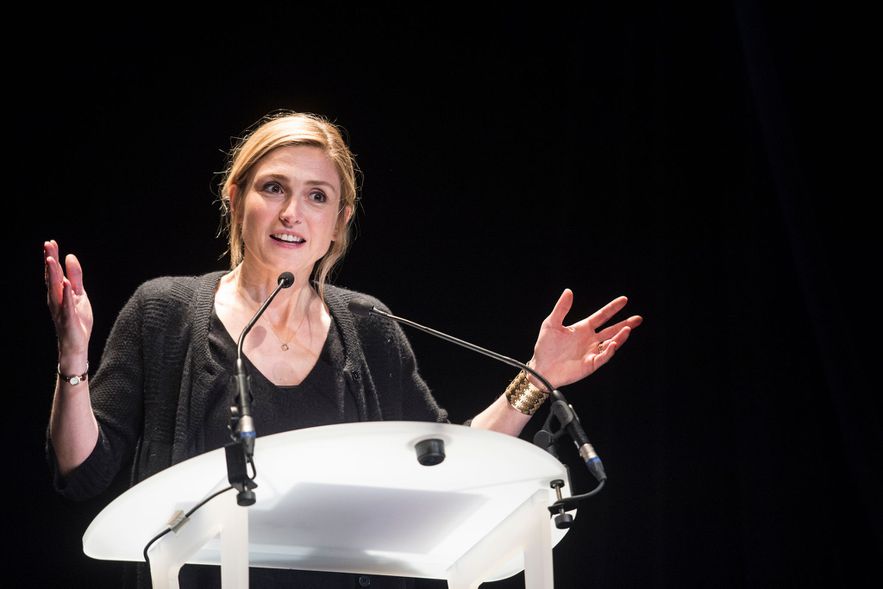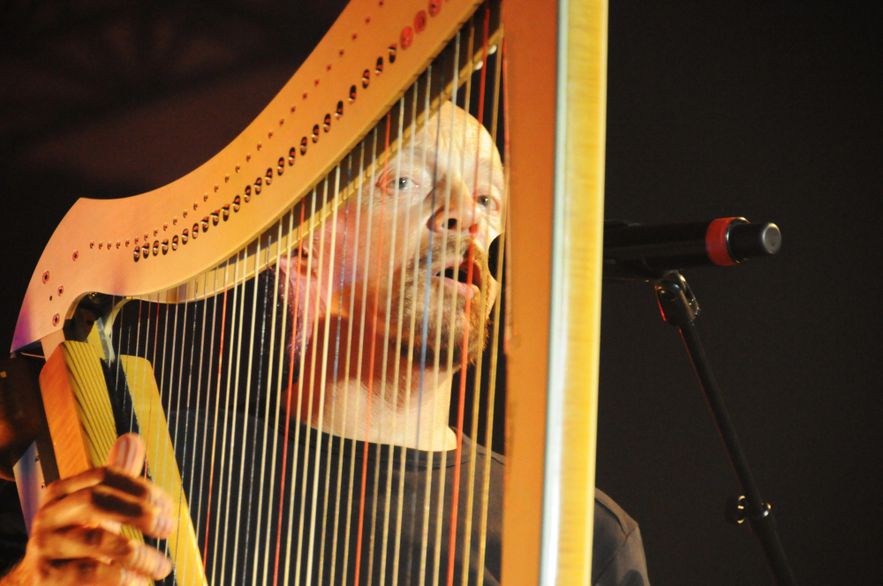When you are a young woman, graduated from a (very) large business school (HEC) and starting your career in marketing, how likely is it that you’ll drop everything and move into funeral services? Answer: almost none, except when we call each other Clementine Piazzathat we decide to bring to this environment the humanity that it sometimes lacks and that, for this, we take particular care with the words we use.
WOULD YOU LIKE TO RECEIVE THIS NEWSLETTER? >> Click here
As is often the case, it was an intimate event which disrupted a brilliant but, until then, normal journey. In 2016, Clémentine Piazza’s best friend lost one of her loved ones. She accompanies him and discovers, frightened, the world of death. “The announcement of the death in no way reflected the family’s emotion,” she remembers. “It was a form of obligation, anonymous and routine.”
She, who then worked for the Unibail-Rodamco-Westfield group, decided to launch an Internet service of tributes to the deceased written by those who knew them. Writings, mainly, but also photos, drawings, music – a form of intangible heritage… “Death is often presented as a taboo, but I was struck, quite the contrary, by the quality and scale texts that were published. They had nothing to do with the announcements and announcements in the newspapers, as formal as they were standardized. The messages were personalized, sensitive, numerous, often very long, sometimes upsetting.” When necessary, she offers people who are uncomfortable with writing and/or digital the opportunity to format their words and put their images online. His remuneration comes mainly from the sale of guestbooks, where the testimonies are collected. To his great surprise, success came quickly. The site now has… 4 million users!
© / Cécile Perrinet Lhermitte
In 2021, Clémentine Piazza takes the next step and starts organizing funerals. “I hesitated for a long time,” she remembers. “I knew that taking care of the bodies and welcoming the families would be difficult on a human level, and I was not sure I was competent. But I trusted myself, because I knew that it met a need.” Inmemorial, his funeral home, was born. “House”, the term is chosen with care, as is the layout of the premises. Outside, neither “shop” nor “showcase”, but a plaque discreetly affixed to the wall of a building. Inside, a warm apartment with intimate lounges, tea, books… A place conducive to exchanges.

© / Cécile Perrinet Lhermitte
Clémentine Piazza carefully teaches her teams to behave gently and, above all, to choose the right words. “We don’t ask ‘how are you?’ to someone who has just lost a loved one, but ‘how do you feel?’ We don’t say to him: ‘Which coffin do you want?’, but ‘We are going to experience a delicate moment: the choice of coffin. We are going to do it together and I will guide you.’ We don’t say: ‘Your mother is in the dump’, a term which rhymes with ‘dump’, but: ‘Your mother is in the ‘mortuary chamber’ – ‘chamber’, because the word is gentle, and ‘ mortuary’, because it is not a question of hiding reality. We can be both gentle and truthful.”
She also raises awareness among her colleagues of the importance of the “mirror effect”. “If someone says ‘my mother,’ we say ‘your mother.’ If she says ‘my mom’, we say ‘your mom’. This requires us to listen, which is essential if we want to be fair.” Likewise, loved ones are received not by “funeral advisors” but by “accompanists”, always two in number. One is concerned with organizing the funeral, so that the other can be fully attentive to the feelings of the bereaved.
The need, clearly, was there. A few years after its launch, Inmemori has already opened houses in Bordeaux, Lyon, Nantes, Paris and Rennes. It is so true that words, when they are well chosen, have a soothing power.
FIND VIDEOS DEDICATED TO FRENCH AND THE LANGUAGES OF FRANCE ON my youtube channel
Julie Gayet refuses to play Olympe de Gouges with an Occitan accent

© / afp.com/SEBASTIEN BOZON
Revealing comments from Julie Gayet, who is co-directing a film on Olympe de Gouges. While this pioneer of feminism at the time of the Revolution was Montalbanese, spoke Occitan and spoke in French with a Languedoc accent, the actress decided to interpret her character with the standard accent and thus justifies her choice in the supplement Sunday of La Dépêche du Midi : “The desire to show its universality meant that we eliminated what risked appearing picturesque.” If we follow the director’s reasoning correctly, people who speak with a regional accent could therefore not express universal ideas, a privilege which would be reserved for speakers with the accent of the Parisian bourgeoisie. A typically glottophobic statement.
Breton first names have long since conquered the entire territory. Among boys, Maël, which means “prince” or “chief”, ranks among the 10 most given first names in France, while Lena (“brilliance of the sun”, the equivalent of Hélène) appears in 15th place.

Singer and harpist Alan Stivell.
© / The Express
Alan Stivell is one of the great actors of the Breton cultural renaissance. At almost 80 years old, he looks back on his unique journey in a widely illustrated work.
Stivell by Alan. A life, Brittany, music, by Alan Stivell (Ed. Ouest-France).
A strong, very strong book, to better understand what Catalan identity is, and why its language plays a major role in this area. It is also a way of claiming a simple right, but little considered in France: respect for cultural diversity.
I am Catalan but I take care of myself, by Juan Milhau-Blay (Héliopoles).
Dictionary of Gascon expressions and formulas
Because expressions and proverbs are the salt of a language and offer a magnificent approach to the culture of a people, Hubert Dutech had the excellent idea of bringing together Gascon expressions and formulas in a work. To devour with relish!
Dictionary of Gascon expressions and formulas. Phrases, expressions, proverbs, quotes, by Hubert Dutech. Orders: [email protected]
Regional languages: soon an annual report to Parliament
From 2025, a report devoted to regional languages will be submitted each year to Parliament, based on the model of the “report to Parliament on the French language”. An initiative from the general delegation for the French language and the languages of France intended to raise awareness among deputies and senators of a subject which remains little known overall.
“Happy New Year” or “Happy New Year”; “mittens” or “mittens”; “pitcher”, “jug”, “carafe” or “water pot; “wagon”, pronounced [vagon] Or [ouagon]. Mathieu Avanzi does it again! The linguist, specialist in regional variations of French, publishes an edition enriched with As we say at home. The great book of French in our regions. Its multiple maps create a veritable atlas of contemporary regional French in a way that is both playful and scientific. A success.
As we say at home, by Mathieu Avanzi, with Aurore Vincenti and Alain Rey (Le Robert).
The shores of Lake Neuchâtel, Switzerland, are so popular that locals have created a special word for them: “bordu.” A term, we learn from the Center for Dialectology and the Study of Regional French, which results from the combination of two mechanisms: “univerbation” (process by which a fixed expression is condensed into a simple word) and “apocope ” (drop of one or more sounds at the end of a word).
Choose the right word, avoid empty formulas, follow up words with consistent actions. Here are some of the rules that Delphine Jouenne recommends following to promote dialogue in companies. This communications specialist is convinced: “Knowing the origin of the words we use so that they are translated into a common frame of reference will allow us to understand each other better and, above all, to hear each other better.”
The (Good) Words of work, by Delphine Jouenne (Ed. Enderby).
Should the complexity of our spelling be reviewed to promote learning? Yes, answer in this France Inter program the linguists Bernard Cerquiglini and Maria Candea, as well as the actor and former French teacher Arnaud Hoedt, specialists on the subject.
What is the relationship between the great plains of the Osage Indians, in Oklahoma, and the Occitan-speaking regions located in France? An extraordinary relationship between two threatened indigenous cultures, which we discover here through the journey of two women. A film directed by Francis Fourcou and shot in three languages: Osage, Occitan and English. Like an ode to cultural diversity (released Wednesday October 25).
REACT, DEBATE AND FIND MORE INFORMATION ON THE LANGUAGES OF FRANCE ON the Facebook page dedicated to this newsletter
.
